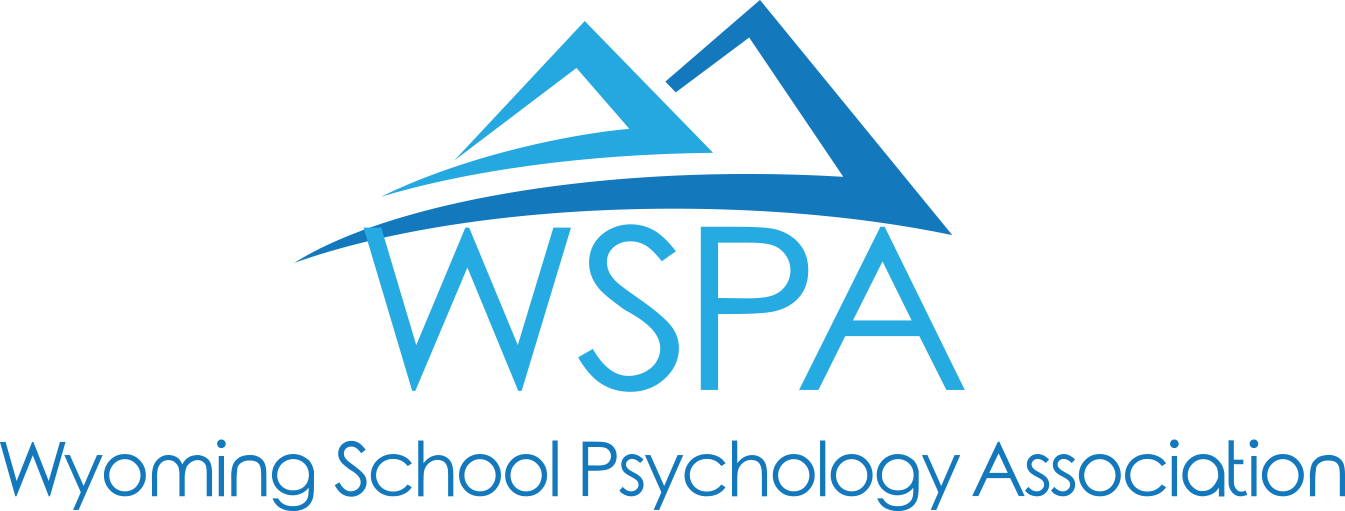
School Board – School Psychologist partnership May 2024
At our most recent Wyoming School Psychology Association (WSPA) board meeting, the board members discussed ways to promote both the increase in demand to hire new school psychologists and ways to attract school psychologists to Wyoming. One of the options that the board considered was to work with local school boards to find out their needs and match a school psychologist’s interests and skills to that position. A point in the discussion concluded that even if there were an abondance of school psychologists available to hire, there would still need to be a position open by a local school board. School boards are a political body that is motivated by fulfilling the educational needs of the students in the district along with following fair, consistent, and sustainable policies that satisfy the community.
Many people in the school psychology profession feel overworked and undervalued. School psychologists are trained in many different academic and behavioral areas but often are focused specifically on SPED evaluations. That is their primary role within the school district they serve. The national organization known as NASP recommends a 500 to 1 student to school psychologist ratio in order to provide the many different services. The state of Wyoming recommends a ratio of about 750 to 1, while most districts operate at a much higher ratio. Many school psychologists that work in Wyoming hold an additional Nationally Certified School Psychologist (NCSP) endorsement that signifies that the person has additional continuing education training in a wide range of educational domain areas. These areas of additional training are often not utilized due to time constraints or awareness. This lack of awareness costs school psychologists in terms of both pay and opportunities.
Earlier this year, a group of WSPA members were in a discussion group about providing a yearly NCSP endorsement stipend for all Wyoming school psychologists. The WDE SPED director, Margee Robertson was a part of that discussion group, as part of the conversation, the topic of school psychologist funding came up. She stated that the local school districts have a lot of flexibility in attracting and paying hard to find certified professionals and she was not aware of the reason why there would be a difference in what a school psychologist would get paid based on their district location or size since the salary is 100% reimbursable through the state SPED grant. During our board meeting we talked about each other’s pay scales and found out that there is wide variability between districts. Some of the districts pay $30,000 to $40,000 dollars a year more than other districts for the same position and hours. The board also talked about school psychologist internship pay, new school psychologist hiring incentives, and stipends for the school psychologist internship supervisors.
These discussions prompted me to ask one of my local school board members about some of these topics. The board member said that Weston County School District #1 values education and provides incentives for staff to increase their education level to help them become better educators. The 100% SPED reimbursement funding helps districts hire more SPED support staff, but the employment and pay decisions are still complicated. School boards look at things such as the position’s sustainability over time, comparable pay scales of like sized school districts, and if there are applicants available that are
willing to move to our town. The school district currently pays the school psychologist’s health insurance cost, this insurance cost increases each year, and the increase has not kept up with the cost of living. The school district has not used hiring incentives in the past but could and would consider them in the future if a position needed to be filled or an opportunity to hire a hard to hire person came up.
As far as using school psychologists in various areas that they are trained in doing, that is an area that school boards and administrators need to be educated and informed on what a school psychologist can do and how the duties would benefit the district and the students. There is a potential to hire more school psychologists if there is an identified area of need beyond what is currently supported.
The main takeaway from this blog post should be that there are proactive actions that can be taken to improve a school psychologist’s job satisfaction and increase both pay and opportunities. Start by educating administrators and school boards on the different job duties that you are trained and interested in doing. Identify areas of need within your school district such as counseling, school systems progress tracking, or behavior intervention planning that school psychologists are capable of doing, then help seek out other school psychologists that would fit into that type of position. Become aware of your district’s pay scale and compare it to nearby or similarly sized school districts then inform the local school board of the discrepancy in pay. I would also encourage any school psychologist that has an interest in being a school psychology internship supervisor to become involved by getting trained and advocate to the school district administrators to provide both a supervisor stipend and internship pay. The WSPA would like to post relevant employment opportunity information on their website. Please let us know if you are an internship supervisor, if you are available to supervise an intern, and your district’s internship compensation.
Scott McGuire, WCSD #1 School Psychologist – EdS. – NCSP, WSPA President

Recent Comments